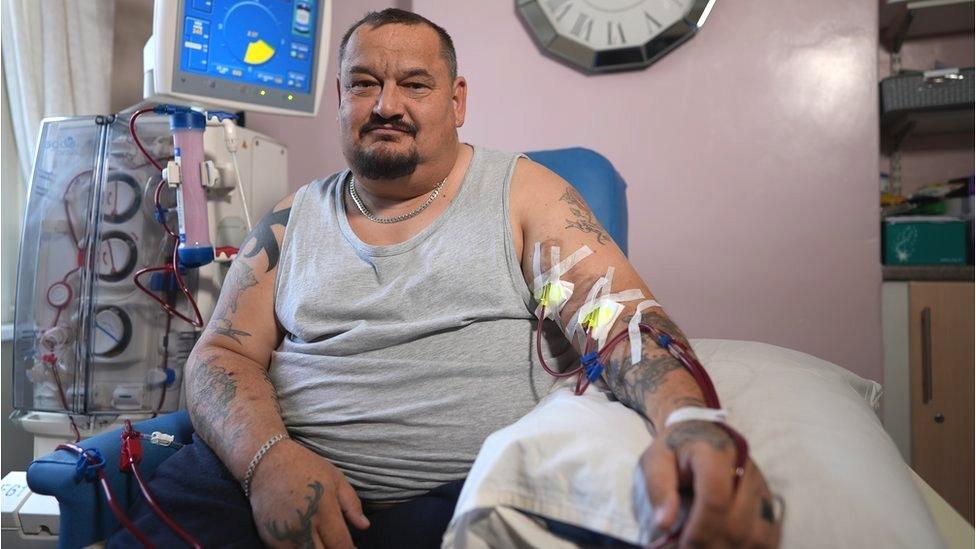Cost of living: 'My daughter wraps me in a blanket to keep warm'
- Published
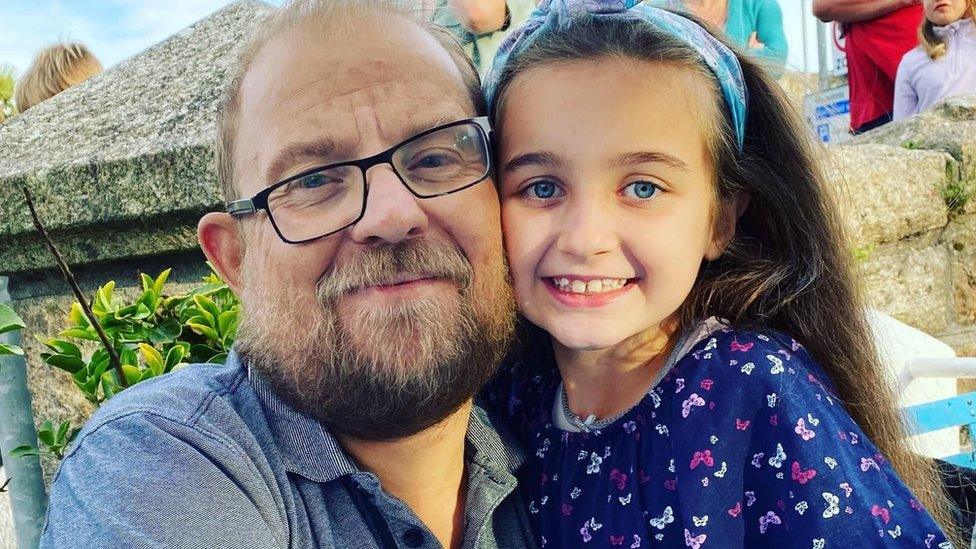
Teacher Ian and his daughter Lyra are very close, and Lyra helps look after him
Primary school teacher Ian Copete spends up to 20 hours a week hooked up to a home dialysis machine due to his chronic kidney disease.
His electricity bill used to be around £150 a month but it's now more than £400.
The 41-year-old, who lives in High Wycombe, is desperate not to switch to hospital dialysis because it would mean being away from his nine-year-old daughter Lyra.
"When I'm at the hospital unit I can FaceTime with Lyra, but it's not the same. We want to be together," Ian says.
The family have decided not to turn the heating on until nearer Christmas, but Ian finds it hard. He feels the cold more because he's anaemic, he has bone disease and is waiting for a fifth kidney transplant.
His wife Heather says she feels helpless watching him shiver under a blanket.
"Lyra is so good with him, she wraps him up in a blanket and she cuddles him to keep him warm. We just pull together as a team because it's the only way we can get through these difficult times," she says.
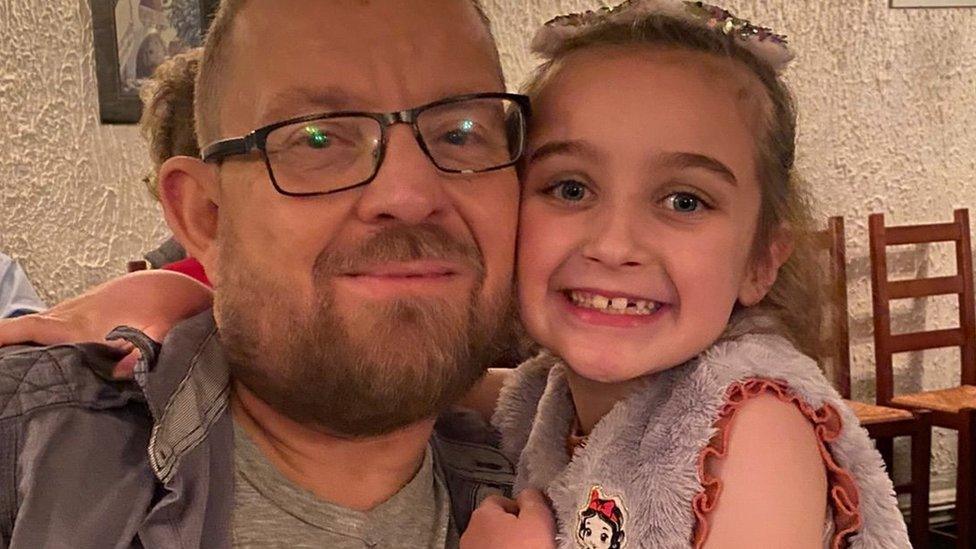
Ian's electricity bill has increased from £150 a month to more than £400
Their water bill has also increased by £50 a month because the average weekly home dialysis session uses the equivalent of 80 showers a week.
Despite this, Heather says she will cut back on "whatever it takes" to continue the home dialysis. "Ian is out all day teaching - he loves his job and he's really good at it - so he doesn't want to be away from the family every evening. It would break his heart," she says.
Ian gets personal independence payments from the government - which help disabled people cover things like transport - but with the rise in fuel costs, he finds it is no longer enough. He also needs to eat a special diet containing a sufficient amount of red meat, which has got more expensive.
The family, who privately rent a two-bedroom flat, say they feel exhausted by their financial worries.
"We've worked all our lives and we've fought all our lives, but we always seem to be fighting," Ian says.
Roxy Greensmith, from Crewe in Cheshire, similarly uses a home dialysis machine, which is costing her an extra £50 a week to use.

Roxy Greensmith is not yet turning her heating on even though she is living with medical conditions
The 36-year-old has also decided not to turn on her heating yet, despite having lupus which affects her joints.
Roxy was given the one-off £150 cost of living payment, external for disabled people by the government, but says it didn't even cover a month of her energy bills.
"I can't afford to miss an electric bill and be put on a prepaid meter, which could cut out while I'm doing my dialysis. It's those things that are at the front of your mind all the time," she says.
It's a situation that Paul Welsh, 60, from North Walsham, Norfolk, recognises. He has suffered from renal reflux for most of his life.
Paul has his dialysis in hospital but is still feeling the financial strain.
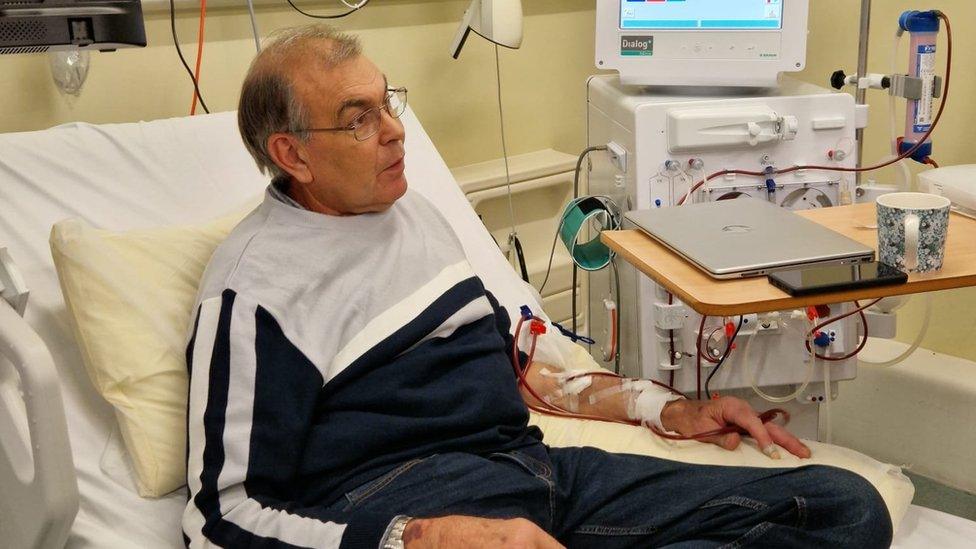
Paul Welsh goes to Cromer hospital for his dialysis and his fuel costs have doubled
The car mechanic, who had hoped to have retired and bought a bungalow with his wife by now, says the cost of driving himself to and from Cromer hospital three times a week has doubled - from £30 to £60 a month.
"I'm also worried about the increase in food costs, because I have a special diet," he says.
"I can't work as much as I did, so all of these increases have a negative impact on my life and health," he says.
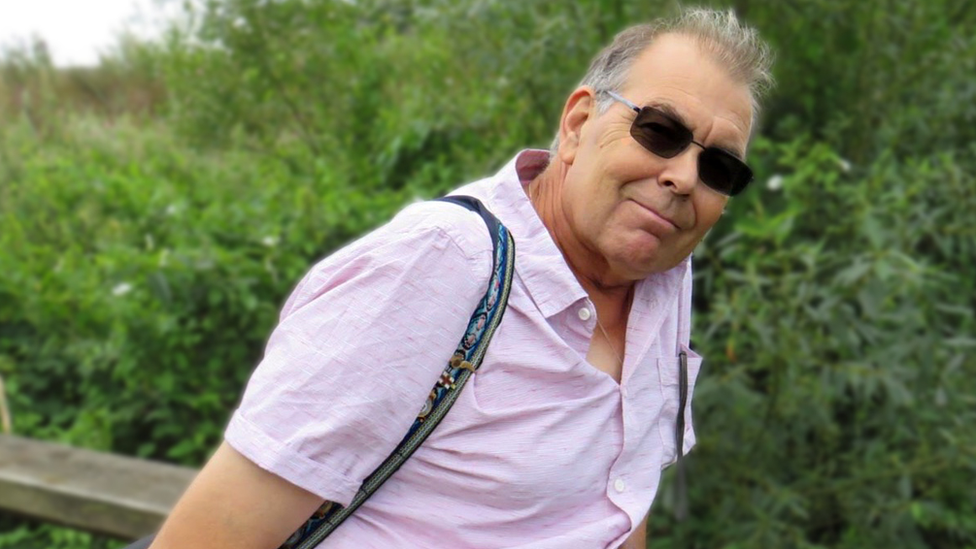
Paul had hoped to have retired from his job as a car mechanic by now
Paul says he is grateful to have received a discount on his water bill with Anglian Water, in a partnership, external negotiated by the charity Kidney Care UK.
The charity is talking to other utility companies about how to support the 3.5 million people in the UK living with chronic kidney disease.
In September and October, the charity saw a 240% increase in demand for heating grants and a 51% increase for £300 emergency assistance grants.
Its recent report, external found that nearly half of kidney disease patients had missed meals because they couldn't afford to eat.
The chancellor Jeremy Hunt announced on Thursday that people on non-means-tested disability benefits would receive a further £150 disability payment, while households on means-tested benefits would receive an extra £900. But the charity says it is not enough.
Fiona Loud, policy director at Kidney Care UK said: "The Autumn Statement simply doesn't go far enough to provide the help and support that thousands of kidney patients need.
"It will be charities like ours who have to step in to support people who are already having to manage living with a chronic health condition and the relentless treatment they need to stay alive.
"Whilst we're pleased to see that benefits will be uprated in line with inflation, we are disappointed that this won't come into effect until April 2023. This means many people will not be able to cover the cost of essentials this winter and risk spiralling into debt."
A spokesperson for the Treasury said: "The interests of those most vulnerable in society have been at the centre of the decisions taken at this autumn statement.
"The government remains committed to helping improve the everyday experience of people with disabilities through the energy price guarantee, increasing benefits in line with inflation and providing £1bn per year in social care in England - increasing to £1.7bn from 2024/25."

Find BBC News: East of England on Facebook, external, Instagram, external and Twitter, external. If you have a story suggestion email eastofenglandnews@bbc.co.uk

Have you been affected by the issues discussed here? Please share your experience by emailing: haveyoursay@bbc.co.uk, external.
Please include a contact number if you are willing to speak to a BBC journalist. You can also get in touch in the following ways:
WhatsApp: +44 7756 165803, external
Tweet: @BBC_HaveYourSay, external
Or fill out the form below
Please read our terms & conditions and privacy policy
- Published17 November 2022

- Published30 May 2022
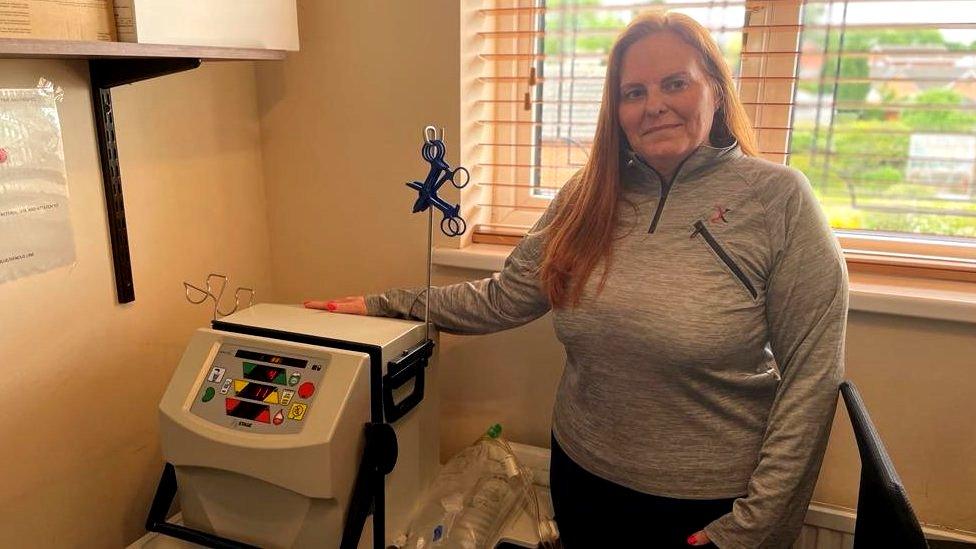
- Published17 October 2022
